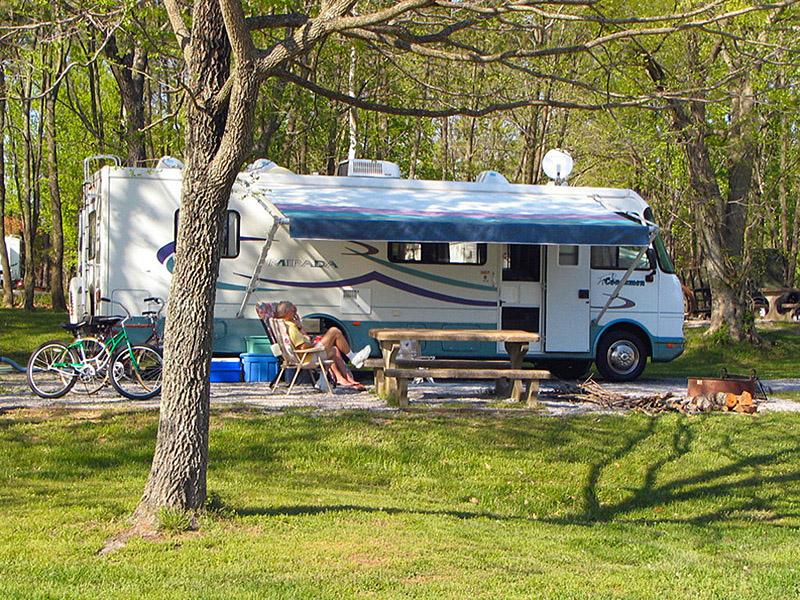 Nashville, TN – To commemorate Tennessee’s annual Carbon Monoxide Awareness Day (September 18th) the mother of a carbon monoxide victim is speaking out in a powerful testimonial video from the Tennessee State Fire Marshal’s Office (SFMO) highlighting the dangers of carbon monoxide poisoning.
Nashville, TN – To commemorate Tennessee’s annual Carbon Monoxide Awareness Day (September 18th) the mother of a carbon monoxide victim is speaking out in a powerful testimonial video from the Tennessee State Fire Marshal’s Office (SFMO) highlighting the dangers of carbon monoxide poisoning.
Clarksville resident Christine Watson is raising awareness of carbon monoxide poisoning which claimed the lives of her daughter and son-in-law (Jon and Kathryn Watson Over) as well as their three friends (Jim Wall, Tim Stone and Allison Bagwell-Wyatt).
On September 18th, 2011, those five people lost their lives when carbon monoxide fumes from a generator seeped into their rented RV at the Clarksville Speedway.
The RV’s carbon monoxide detector, which could have prevented the deaths, was later discovered to have no batteries.
“I hate to see another family have to go through the kind of heartache that my family has had to endure,” said Watson. “I urge all Tennesseans to be aware of the risks of carbon monoxide and to check the batteries on their carbon monoxide detectors.”
Carbon monoxide (CO) is an invisible, odorless gas created when fuels (such as kerosene, gasoline, wood, coal, natural gas, propane, oil, and methane) burn incompletely. Carbon monoxide can result from camping equipment, such as barbecue grills, portable generators or other fuel-powered devices.
“I sincerely thank Christine Watson for her tireless efforts to help Tennesseans learn the signs and symptoms of CO poisoning and how tragedy can be prevented,” said Tennessee Department of Commerce & Insurance Deputy Commissioner Gary West. “Bringing attention to this issue will undoubtedly help prevent future tragedies from occurring.”
Since the 2011 tragedy, progress has been made to protect consumers and raise awareness of CO poisoning. Tennessee law now requires that rented RVs must have functioning carbon monoxide detectors before being leased for use. The law also holds RV rental companies responsible if they fail to document and test the CO detectors in their leased vehicles.
(This law only applies to RV rentals.) It is still imperative that RV owners stay diligent in testing and changing the batteries of carbon monoxide detectors in their own campers.
In 2015, legislation was signed by Tennessee Governor Bill Haslam declaring September 18th as Carbon Monoxide Awareness Day in Tennessee. The legislation was sponsored in the House by Tennessee State Representative Joe Pitts (D-Clarksville) and in the Senate by Senator Mark Green (R-Clarksville).
To help families become aware of CO poisoning, the SFMO offers the following safety tips:
- To prevent CO poisoning, never use a gas generator inside your home, garage, carport basement, crawlspace or outside near a window, door or vent. A generator should only be used outdoors at least 15 feet away from buildings. It is dangerous to use a gas or kerosene heater inside a home or other building.
- Never use a gas range or gas oven to heat your home. Do not use a gas or charcoal grill indoors, and do not burn charcoal in your fireplace.
- Do not run a vehicle or other fueled engine or motor indoors, even if garage doors are open.
- Do not use fuel-powered equipment in the garage.
- Carbon monoxide detectors are important in protecting against CO poisoning, and are widely available at home and hardware stores. Carbon monoxide detectors can provide an early warning before the gas reaches a dangerous level.
- Each home or business should have at least one carbon monoxide detector.
- Common symptoms of carbon monoxide poisoning include headache, dizziness, nausea, vomiting, shortness of breath and confusion. Many of these symptoms are similar to common colds or seasonal flu. Breathing high levels of carbon monoxide can cause loss of consciousness or even death.
- If carbon monoxide poisoning is suspected, turn off possible sources of the gas.
- Any person who has been exposed to carbon monoxide should immediately be moved to a fresh air location outdoors or by an open window or door.
- Call 911 from the fresh air location and stay there to await emergency assistance.



